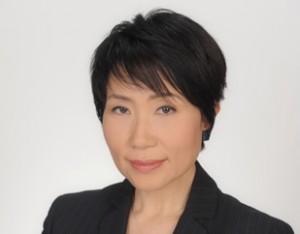CEO of the Global Environment Facility (GEF) Naoko Ishii last week announced at a gathering of global leaders in Apia, Samoa, the largest amount of GEF resources ever provided for Small Island Developing States (SIDS) in its new four-year funding cycle. For the period 2014-18, the GEF will make available a total of $256 million for projects to improve the environment, equivalent to an increase of 9% compared to the previous four-year period.

In addition to the dedicated country allocations, GEF resources are available from a special window on Chemicals and Waste, from the GEF’s International Waters programmes, its Sustainable Forest Management incentive programme, and its Capacity Development programme. Specific support to SIDS countries to fulfil their reporting obligations under international environmental conventions is also available.
“The challenges that SIDS face are global challenges. Namely, how can the globe’s ecosystems continue to sustain the world’s aspirations for economic growth and prosperity? However, nowhere is a healthy environment and prospects for growth and prosperity linked as closely as in SIDS”, said Ishii. “The long-term prospects for SIDS—in some cases, even their existence—are threatened by climate change and associated sea level rise and stronger and more frequent storms. SIDS’ challenges are further exacerbated by its vulnerable and interlinked ecosystems, natural resource depletion (including marine resources), soil degradation and land and costal pollution. In SIDS countries, sustainable development is not a choice, but a necessity.”
Aligned with the Apia Summit’s focus on “partnerships”, the GEF highlighted several new initiatives that are being prepared in support of SIDS countries. One under development is the $22 million Pacific Islands Regional Oceanscape Program (PROP) where Pacific Islands are working with the World Bank, regional organisations and the GEF to support smart limits on tuna fishing that will increase their economic gains while helping stem losses of marine biodiversity, declines in fish stocks and threats to marine ecosystem health and services for the benefit of the people of the Pacific Region. It will empower coastal fishing communities to conserve critical habitats such as mangroves and coral reefs that support the fisheries and biodiversity. And it will facilitate regional collaboration among Pacific Island Countries by harmonizing regional management approaches and facilitate effective sharing of market intelligence and other actions to advance the economic interests of countries. The PROP is a phased engagement, with early participants in PROP including the Marshall Islands, Tuvalu and Solomon Islands.
The GEF is also ramping up its investments in renewable energy for the SIDS, and reiterated its commitment to support SIDS in this crucial sustainable development priority. “Energy represents a major expense for many SIDS”, noted Ms. Ishii, “but SIDS counties have huge opportunities to tap their abundant renewable energy potential. Both solar and wind are suited for both larger islands and remote corners of archipelago nations.”
The GEF is seeking to partner with a broad array of players, including for example the Clinton Climate Initiative, SIDS Dock and others, to put programs in place to assist SIDS in moving towards renewable energy.
For more than two decades, the GEF has supported SIDS countries to tackle their most pressing environment and development challenges. In the past two decades, the GEF has provided close to $1 billion in support for sustainable development in SIDS. The small size of SIDS, remoteness, and limited natural resource base means that successful development requires an integrated approach. The GEF is working with island countries in the Pacific, Africa and the Caribbean to tackle the food, water, energy and ecosystem nexus, through an ecosystem based approach known as Ridge to Reef. This approach is designed to reverse the degradation of coastal resources by reducing flows of harmful chemicals, nutrients and sediments from agriculture and forestry in catchments.
Essentially, under Ridge to Reef, Integrated Water Resources Management and Integrated Coastal Management plans come together to inform long-term sustainable use of the natural resources while limiting the impact on the fragile environment. The Ridge-to-Reef Program was one among many projects highlighted in a joint UNDP-GEF publication “Island Innovations – UNDP and GEF: Leveraging the Environment for the Sustainable Development of Small Island Developing States” that was launched at the Summit. The publication showcases outstanding results from a series of environment and sustainable development projects from SIDS across the world.
SIDS need significant support to strengthen adaptation to climate change. Sea level rise and more frequent storms will require significant preparatory planning and investments. In addition, with more unpredictable weather, decisions about what and when to plant become more difficult. “The GEF is putting strong emphasis on supporting adaption across SIDS”, Ms. Ishii noted. “For example, we are pleased to support the GEF’s Pacific Adaptation to Climate Change (PACC ) regional project , for instance , is enhancing the capacity of 13 Pacific SIDS to adapt to climate change in selected key sectors by integrating climate change risks and adaptation measures into relevant development policies and plans”.
